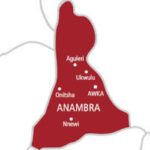Anambra State Government has cut its 2020 budget from N137.1 billion to N112.8 billion, representing a 16 percent reduction.
The State’s Commissioner for Economic Planning, Budget and Development Partners, Mr Mark Okoye, made this announcement on Monday.
According to the commissioner, the revised total revenue would represent a drop of 29 percent from the projected N158.6 billion to N112.8 billion, outlining factors that necessitated the review to include a fall in crude oil prices and low internal revenue.
READ: FG approves N10.52tn for revised 2020 budget
He revealed this in a virtual session hosted by the Ministry of Economic Planning, which had in attendance officials of the state budget team as well as representatives from Civil Society Organisations and Manufacturers Association of Nigeria (MAN).
The breakdown shows that recurrent expenditure will decline by 18.9 percent from an initial N58.8 billion to N47.7 billion while total capital expenditure had been reduced by 16.9 percent from N78.4 billion to N65.1 billion.
He said the review became necessary in view of the raving coronavirus pandemic across the country and the world.
However, the budgets of critical sectors like health, water and sanitation were not touched to ensure that there would be a buffer to contain COVID-19 outbreaks and associated social distancing and economic fall-out according to Okoye.
READ: National Assembly committees begin consideration of revised 2020 budget
Okoye, however, drew special attention to key underlying guidelines during the 2020 Budget revision, stating that non-essential items in the budget have either been reduced or stripped from Ministries, Departments and Agencies (MDAs) capital expenditure budget.
He added that the reductions on some non-essential items were to position the state against post-COVID-19 shocks on the back of declining government revenues and receipts.
Okoye also stated that some provisions had been made to give cash transfers and livelihood support to the poor and vulnerable households in the light of current economic realities.
This, he said, will provide increase food security and safe functioning of food supply chains for all residents of the state.

 Join Daily Trust WhatsApp Community For Quick Access To News and Happenings Around You.
Join Daily Trust WhatsApp Community For Quick Access To News and Happenings Around You.


